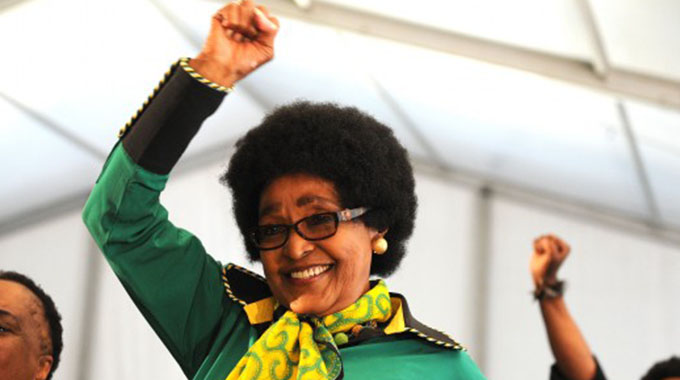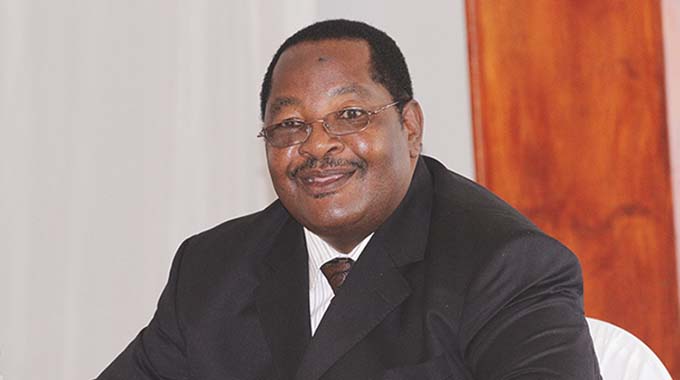Pain and shock at passing of Winnie Mandela

Lisa Vives Correspondent
Tributes to anti-apartheid icon Winnie Madikizela-Mandela have been filling the South African radio airwaves as news of her untimely passing on April 2 reached the far corners of the nation and the continent. Heart-rending classics from the American songbook – from “The Song for Mama” by Boyz II Men to Donny Hathaway’s “A Song for You” – expressed the sombre mood in the nation while social media filled with remembrances by those whose lives she touched – sometimes with a single word, sometimes with a long eulogy.
“The big tree has fallen the #MotherOfTheNation, a nation builder ulale kahle mama you have fought a good fight, you’ll remain in our hearts,” wrote Andile KaMajola on Twitter. “How I wish to have met you,” wrote Sego Bae we EFF from South Africa’s city of Randburg. “You are a woman of steel and no one will ever take away that from you mama Winnie Nonzamo Mandela. May your lovely soul rest in peace.”
The anti-apartheid fighter, once the wife of Robben Island prisoner later president Nelson Mandela, had been in and out of Netcare Milpark Hospital battling a kidney infection, according to her spokesman, Victor Dlamini. A message from the family read: “Altho we are gutted by her passing, we are grateful for the gift of her life.”
Recently, she was an observer during the ANC’s struggle over corruption allegations that enveloped past president Jacob Zuma. She expressed confidence in the new leadership of the ANC under Cyril Ramaphosa. “We’re going to surprise the country. I’ve told them they must watch this space. I’m back,” she declared.
Born in the famously rebellious district of Pondoland in the Eastern Cape, Nomzamo Winifred Zanyiwe Madikizela was one of nine children – six of them daughters – of two teachers and devout Methodists, Columbus Madikizela and his wife, Gertrude.
As a teenager, Madikizela-Mandela moved to Johannesburg where she studied social work after matriculating. She met lawyer and anti-apartheid activist Nelson Mandela in 1957 and they married a year later and had two children together.
The marriage was short-lived‚ as he was arrested in 1963 and sentenced to life imprisonment for treason. Mandela was eventually released in 1990.
She was a strong single parent who raised two children while her “larger than life” husband was in prison. But this was a time that the ANC and the country overall was very “gendered”, spurring her struggle for women’s rights.
Winnie suffered her first major spell of imprisonment in May 1969, having been arrested, supposedly for political agitation, but more likely for simply being the wife of Nelson Mandela. Her treatment by police was appalling. Held for 17 months, most of it in solitary confinement, she was interrogated and kept awake for up to five days at a time.
Fainting, hallucinating and passing blood in her urine, she landed up in the prison hospital suffering from malnutrition. She recognised the brutalising effect the experience had on her, telling a television interviewer many years later: “I knew what it is to hate.”
The picture of her hand-in-hand with Mandela as he walked free from prison after 27 years, became one of the most recognisable symbols of the anti-apartheid struggle.
Meanwhile, Archbishop Emeritus Desmond Tutu issued a statement saying: “May Mam’ uWinnie rest in peace and rise in glory.”
Madikizela-Mandela refused to be bowed by the imprisonment of her husband, said Tutu, or the perpetual harassment of her family by security forces, detentions, bannings and banishment.
He and his wife Leah have sent their condolences to her daughters, grandchildren and extended family saying her courageous defiance was deeply inspirational to Tutu and generations of activists. – In Depth News/Global Information Network.









Comments